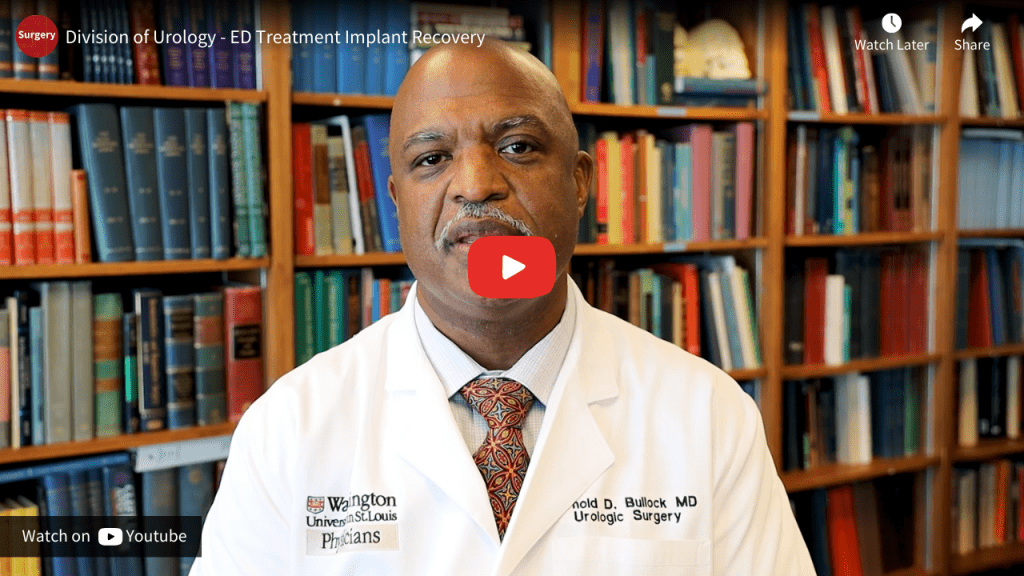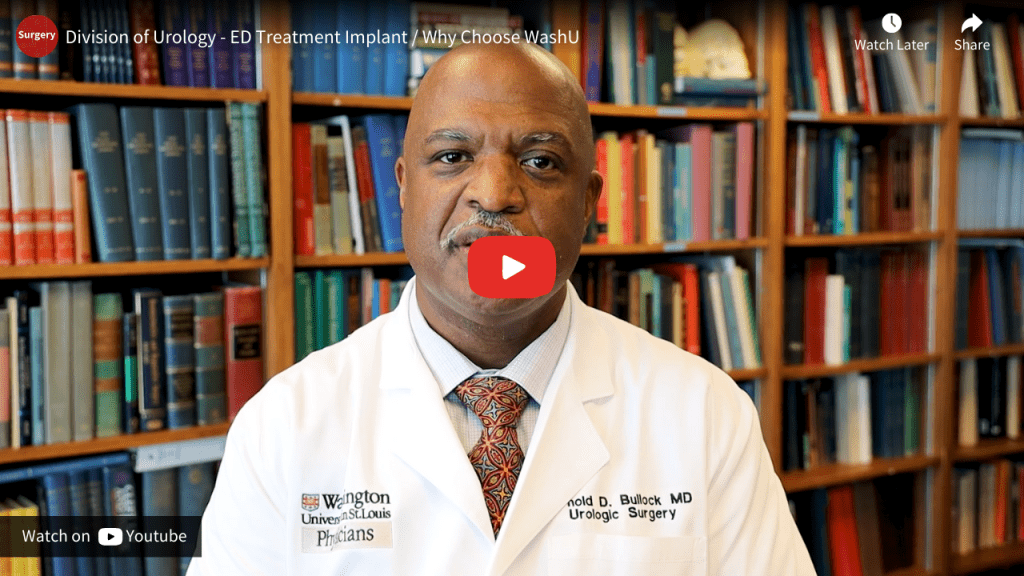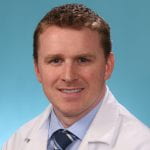
Men’s health topics are important to discuss with a doctor, but for many men it is difficult to have these conversations with their health care provider. Washington University urologic surgeons answer questions about penile implants below.
Penile implants are the most effective treatment option for erectile dysfunction, and they provide the highest satisfaction rate. The implant is a surgical procedure that takes about an hour, and it is placed through a small (1.5 inch) incision. The implant is not obvious even when naked and provides a rigid erection with no change in the sexual sensation or climax. It is covered by most insurers.

The penile implant has two inflatable cylinders that are placed within the two erectile bodies of the man’s penis. When a small pump in the scrotum is activated, fluid is transferred from a small reservoir into the inflatable cylinders in the penis and the erection is formed.
Like with all surgical procedures, there can be some post-operative pain. The incision is quite small, but men still complain of pain typically for 1 – 2 weeks.

The implant does not affect how a man voids or ejaculates.
Penile implants are covered by your medical insurance company. It is rare for a man to pay out-of-pocket. The cost of having an implant is aggressively negotiated by your insurance company.
Medicare covers penile implant placement surgery, penile implant exchange and implant removal. Medicare in general covers 80% of the cost, and typically a secondary insurer covers nearly all the remainder. Most men pay $200 – $400 out of pocket.

Washington University Urology can discuss penile implant procedures options. Meet our specialists.


